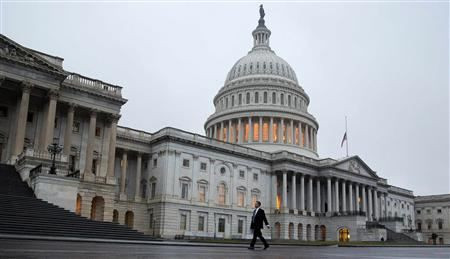Immigration Reform 2013: Policy Experts, Police Rebuff Gowdy’s Enforcement Bill

An immigration reform bill that advanced through the House Tuesday night is quickly being cast off as a nonstarter for some immigration policy groups and police, who worry about response to serious crimes when law enforcement systems for tracking dangerous criminals get cluttered.
The House Judiciary, a key committee in the process for passing comprehensive immigration reform, voted 20-15 to approve the Strength and Fortify, or Safe, Act, otherwise known as H.R.2278, by Rep. Trey Gowdy, R-S.C. It is the first piece of immigration reform legislation that lawmakers in the House have acted on. Gowdy’s bill empowers state and local law enforcement entities to carry out immigration law enforcement. It also would make the nation’s currently 11 million undocumented immigrants guilty of a federal crime because they are here illegally. Under current law, these individuals are committing a civil offense.
The National Immigration Law Center, or NILC, a legal advocacy organization that defends the rights of low-income immigrants, has dismissed the congressman’s enforcement-only approach, saying it hasn’t worked for the last 20 years. The bill, according to the group, sends a clear message.
“I think the message it’s sending to immigrants is that ‘we don’t want you here, we want you out,’” Kamal Essaheb, immigration policy attorney at the NILC, said.
Essaheb is also concerned Gowdy’s measure will deputize local and state cops to act in same way their federal counterparts would. H.R.2278 sweetens the deal for willing participation by offering grants and funding to states and localities. Those jurisdictions that don’t are punished by being ineligible for the funding. This cash incentive would come at a time when the cash-strapped federal government is undergoing a sequester to automatically slash $100 billion in spending across the board.
Essaheb is questioning Republicans’ commitment to fixing the broken system or their interest in “demonizing” and “criminalizing” immigrants. A majority of Americans (58 percent) support a pathway to citizenship, according to a Washington Post-ABC News poll last month. Despite the passage of the interior enforcement bill, Essaheb said he remains hopeful that House leadership, specifically House Speaker John Boehner, R-Ohio, will follow the will of the American people and provide a path to citizenship for the undocumented.
Cops themselves are worried the Safe Act and measures like it could get in the way of doing their jobs. Some are also concerned that getting involved in immigration enforcement can create a trust deficit between the police and communities and hamper crime-fighting efforts.
Salt Lake City Police Chief Chris Burbank issued a statement saying that the goal of the police is to prevent crime, not responding to and documenting the “victimization of our citizens and neighborhood.” He said trust is necessary to do that job effectively.
“When police officers are forced to detect and detain immigrants who are here without authorization, this trust is easily broken,” Burbank’s statement read. “It inappropriately interjects bias into our profession and illegitimizes the compassionate service provided daily by police officers throughout the country.”
Burbank said these types of legislation go beyond political theater.
“They threaten public safety across our nation by making members of immigrant and Latino communities reluctant to come forward as victims of, or witnesses to, crime,” the statement continued, noting that the Safe Act would put civil immigration information into the National Crime Information Center, or NCIC, a database for tracking crime-related information, and could cause clutter.
“In police work, every second matters, and every relationship with a community member counts,” Burbank said. “We shouldn’t be forced to waste time or lose trust with the communities we serve. Every individual regardless of race, nationality, religion or sexual orientation is entitled to equal access to law enforcement resources. The measure of successful immigration reform should never be based upon the number of violators detained but upon the number of new citizens we welcome to our nation.”
© Copyright IBTimes 2024. All rights reserved.





















